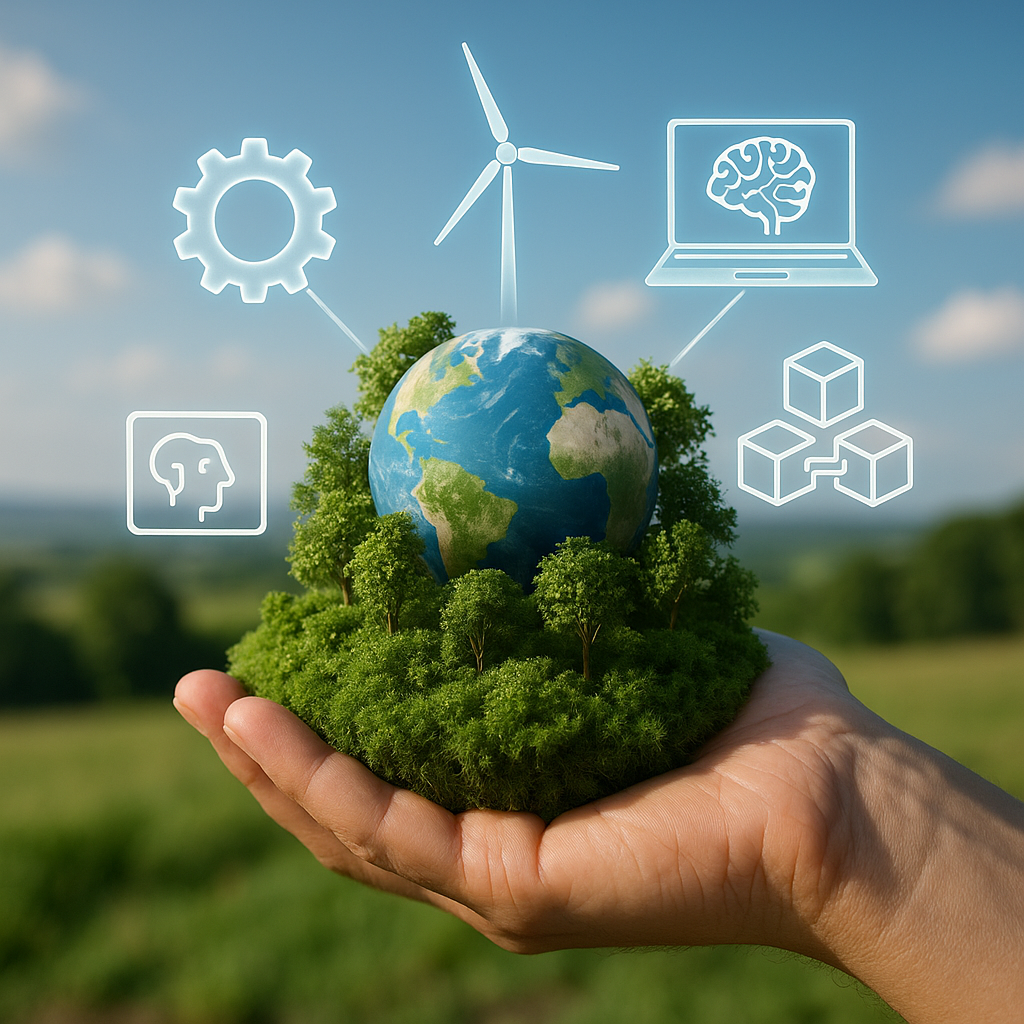From AI to IoT: How digital tools are powering race to achieve the SDGs
The analysis shows that digital technologies are accelerating progress toward several SDGs, but their impact is not evenly distributed. Some goals, such as sustainable cities (SDG 11), climate action (SDG 13), and industry innovation (SDG 9), benefit significantly from tech adoption, while others, like reducing inequalities (SDG 10), receive less attention in the current research landscape.

Digital innovation is rapidly transforming how the world tackles sustainability challenges. A new study reveals that emerging technologies, from artificial intelligence to blockchain, are becoming critical drivers in achieving the United Nations’ Sustainable Development Goals (SDGs).
The research, titled "Digital Enablers of Sustainability: Insights from Sustainable Development Goals (SDGs) Research Mapping", published in Sustainability (2025, 17, 7031), uses an extensive bibliometric analysis of over 1.17 million publications to uncover how 11 key digital technologies are shaping the pursuit of sustainability. The findings highlight a dramatic surge in technology-driven SDG research, underscoring both opportunities and risks as global economies embrace digital transformation.
Which digital technologies are leading the push toward sustainability?
The study identifies artificial intelligence as the dominant force in SDG-focused technological research. AI’s versatility allows it to be applied across multiple sectors, from healthcare and agriculture to urban management and energy efficiency. Its ability to analyze vast datasets and generate predictive models positions it as a powerful enabler for goals such as improved health (SDG 3), sustainable industry (SDG 9), and climate action (SDG 13).
Robotics follows closely, particularly in industrial automation, precision agriculture, and waste management. These technologies enhance efficiency while reducing environmental impact, aligning with targets for cleaner production and sustainable urban systems.
Other technologies display more specialized contributions. 3D printing is closely associated with sustainable industry and innovation, offering potential to reduce material waste and support local manufacturing. Blockchain is emerging as a key tool in economic transparency, governance, and supply chain traceability, while digital twins are gaining prominence in urban planning and environmental modeling, allowing policymakers to simulate scenarios before implementing changes in real-world systems.
The research also points to Internet of Things (IoT) and cloud computing as foundational technologies supporting real-time monitoring and data sharing, both of which are essential for tracking sustainability metrics.
How do these technologies impact the SDGs?
The analysis shows that digital technologies are accelerating progress toward several SDGs, but their impact is not evenly distributed. Some goals, such as sustainable cities (SDG 11), climate action (SDG 13), and industry innovation (SDG 9), benefit significantly from tech adoption, while others, like reducing inequalities (SDG 10), receive less attention in the current research landscape.
The authors highlight that AI and big data analytics are particularly effective at addressing environmental goals by enabling predictive climate modeling and resource optimization. For example, AI-driven tools help predict energy demand, optimize renewable energy integration, and model biodiversity loss scenarios.
Digital twins are revolutionizing city planning and infrastructure management by allowing planners to test solutions virtually before deployment. This reduces costs, minimizes errors, and enhances resilience in urban environments. Similarly, blockchain promotes secure data management and transparency, critical for governance and anti-corruption efforts linked to SDG 16.
However, the study cautions that not all impacts are positive. The energy consumption of certain technologies, particularly blockchain and large-scale AI models, can exacerbate environmental challenges. Moreover, the benefits of digital transformation are often concentrated in high-income countries, risking increased inequality between regions.
The findings also emphasize that while many technologies support environmental and economic goals, social aspects of sustainability, such as equity, education, and inclusive participation, require stronger policy integration to avoid leaving marginalized groups behind.
What challenges and risks threaten the role of digital enablers?
Digital technologies face significant barriers that could hinder their effectiveness in achieving the SDGs. The study identifies data privacy, cybersecurity, and ethical risks as critical concerns. As more systems rely on interconnected networks, the risk of cyberattacks increases, potentially destabilizing essential services.
The carbon footprint of digital infrastructure also raises questions about the sustainability of the technologies themselves. Energy-intensive operations, such as blockchain mining and large-scale data centers, could offset gains made in other areas of environmental protection unless coupled with green energy solutions.
Another pressing issue is digital inequality. The rapid growth of tech-driven solutions often benefits regions with strong digital infrastructure, leaving developing countries behind. Without targeted interventions, this digital divide could widen, undermining the global effort to meet SDGs equitably.
Finally, the lack of standardized frameworks for implementing and monitoring digital technology use in sustainability initiatives creates inefficiencies. Without clear guidelines, cities and nations risk deploying fragmented systems that fail to scale or integrate effectively.
To overcome these challenges, the authors recommend implementing ethical regulations, open data policies, and strong public–private partnerships. Investments in digital education and infrastructure, particularly in underdeveloped regions, will also be critical to ensure that technological benefits are shared globally.
- READ MORE ON:
- digital technologies for sustainability
- AI and SDGs research
- blockchain in sustainable development
- digital twins for climate and urban systems
- IoT applications in sustainability
- Industry 4.0 and sustainable development goals
- cybersecurity risks in sustainability tech
- sustainable development
- digital technologies for SDGs
- FIRST PUBLISHED IN:
- Devdiscourse










